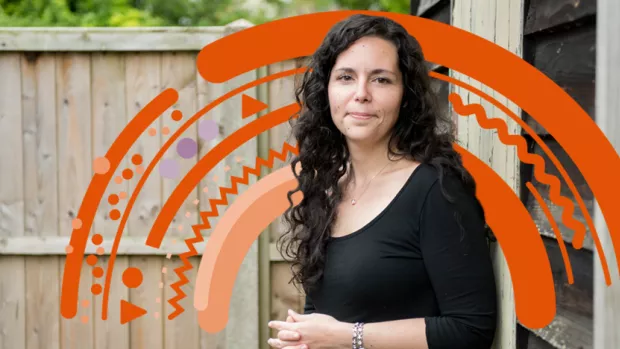
Telling my employer about my MS
Emma Hancox lives with relapsing remitting MS. She shared her recent experience of telling her employer about her condition.
I had my first known relapse 18 years ago after a misdiagnosis of a transient ischaemic attack (TIA). I was diagnosed with relapsing remitting MS around 7 years later. This means I’ve been sharing my diagnosis with employers for a lot of my working life. I don’t need any work adaptations. But it’s helpful if my employer knows that symptoms from previous relapses, another relapse or my medication could impact my daily activities.
Even after all these years, I’m frustrated that having that conversation continues to fill me with dread. Is it me being awkward and overly sensitive about the response? Or is it reasonable to expect a thoughtful, personal response?
Over the years, some of the responses I’ve had include:
- ‘I’m sorry to hear that’
- ‘I’d never have guessed’
- ‘You must always be tired’
- ‘You look tired’
- ‘Are you on medication?’
- ‘Are you able to provide a letter from your consultant?’
The list goes on.
Good intentions
Recently I told a supervisor about my MS. Part of their role is supporting my personal and professional development, and their response was just “ok”. Full stop.
To drive my point home, I checked the dictionary after this conversation. And, in this context, it’s been used as a something similar to 'all right', 'very well', 'yes' or 'very good'.
I understand they were probably trying to create an inclusive environment – an attempt to normalise disability in the workplace. And while I appreciate the sentiment, it’s not ‘ok’ for me. I’m not looking for pity or any grand gesture, but maybe recognition that I’m sharing something personal. And that I’m sharing it in a work environment, which means I’m doing it because I need to, rather than want to.
A bit of empathy goes a long way
I even question if ‘ok’ can ever be inclusive or if it’s quite the opposite. It made me feel uncomfortable and very conscious that I was in this situation because of having MS. Since then, I’ve reflected (endlessly) on what response I would’ve been happy with. And my conclusion is anything genuine or with some level of empathy. For example:
- ‘Are you happy to share with me how MS affects you?’
- ‘I don’t know much about MS, are you able to tell me about it?’
- ‘Do you need any support from me?’
Something empowering so that I can breathe a sigh of relief and continue enjoying my work, safe in the knowledge support is in place.



